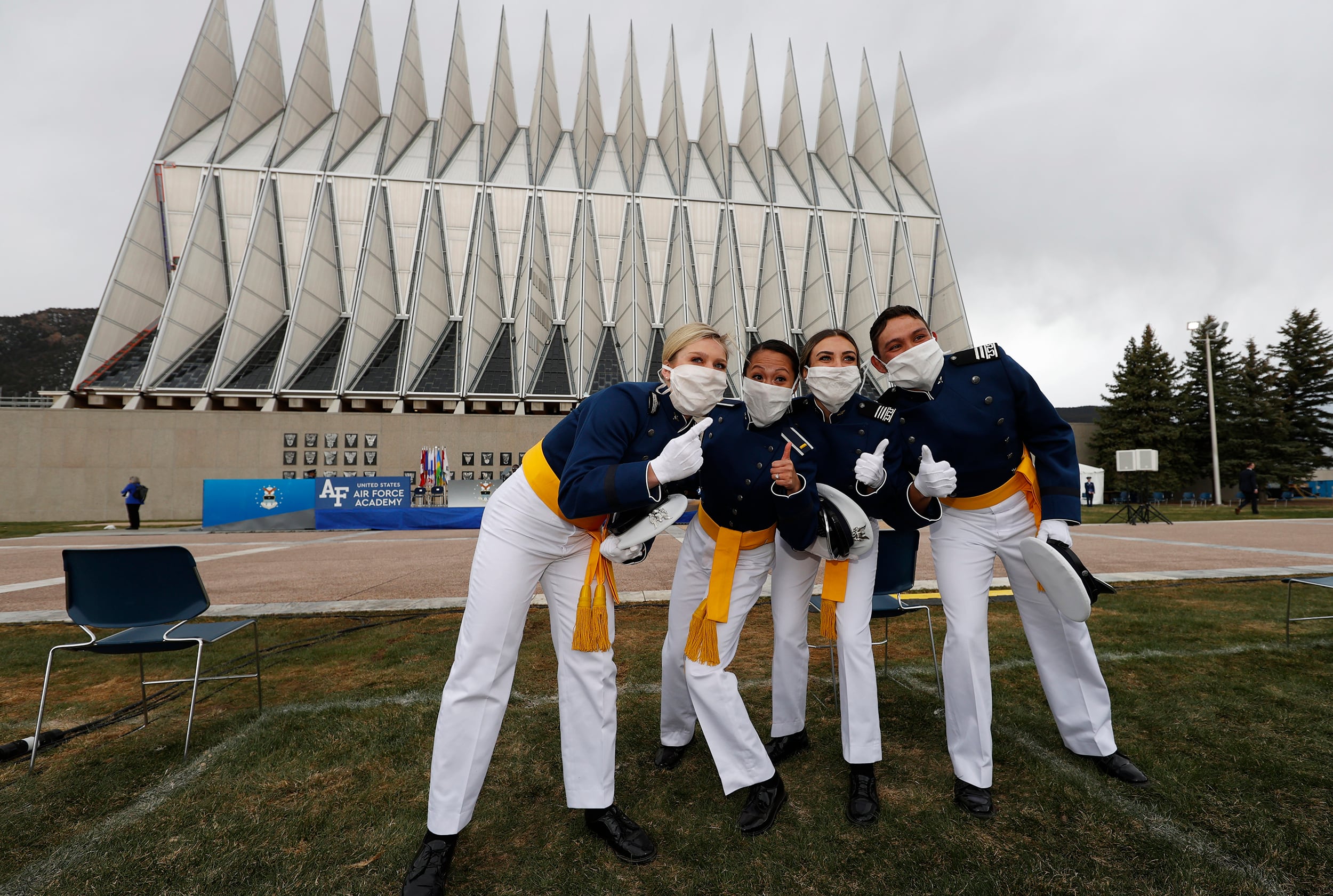The Air Force is bracing for COVID-19 to be around for a while — and that means the service needs a game plan for how to operate as the world combats the virus, according to Air Force Chief of Staff Gen. Dave Goldfein.
“Until we have a vaccine, we are going to be living with this virus,” Goldfein told reporters Wednesday. “And the potential for it to come back in some cyclical way is likely. And so if that’s the world we're living in, how do we as an Air Force operate in that environment and do the nation’s business?”
Goldfein said the Air Force initially unveiled a “reset to the new normal” process, which was designed to identify key mission areas that must continue with “breadth and depth,” even in light of COVID-19. Those missions included the nuclear mission, the space mission, air mobility, among other things, he said.
In accordance with the process, the Air Force divvied up “blue-silver” teams to tackle shifts as they remained “somewhat” in isolation from each other. According to Goldfein, those procedures in place are working to quash the COVID-19 threat.
But the service is now gearing up for another reset come June 1 — this time a “new abnormal” reset that Goldfein said will spell out how to live and operate in a world with COVID-19, absent a vaccine.
“That means we’ve got to refine our ability to survive and operate and do the missions the nation requires,” Goldfein said. “And we’ve got to bring back those missions that we’ve slowed down so we can get back to some kind of sense of a new normalcy in an abnormal world.”
One area that is absolutely critical for the service to preserve is sending trainees to Basic Military Training, Goldfein said. In response to the COVID-19 pandemic, Air Force Education and Training Command instituted several new changes to prevent airmen from spreading the virus, including cutting down the number of trainees who report for duty to about 460. The number signifies a decrease from the up to 800 trainees in each class under normal circumstances.
Despite the fact that the virus has forced the service to cut down the number of new trainees filtering through Basic Military Training at Lackland Air Force Base in Texas, Goldfein said the reduction so far hasn’t led to any deficiencies across any Air Force specialty codes — at least not yet.
Furthermore, Goldfein noted that retention numbers are going up — a result he attributed to the poor economy and the lack of hiring across the board. But under the “new abnormal” reset, Goldfein said the flow of trainees can hopefully increase.
Despite the challenges, Goldfein said that some of the changes the Air Force has adopted due COVID-19 protocol remain in place. For example, he said that the Air Force Academy in Colorado gained a wealth of knowledge concerning distance learning.
“There are some things that quite frankly I hope we never go back to the previous era, in terms of how we’re delivering content, how we’re upping our game in terms of professional military education, and how we’re using some of the new tools associated with that,” Goldfein said.
On Wednesday, the Air Force reported that 337 airmen have tested positive for COVID-19, along with 181 Air Force civilians, 204 dependents and 83 contractors.
Defense News’ Valerie Insinna contributed to this report.




